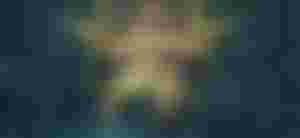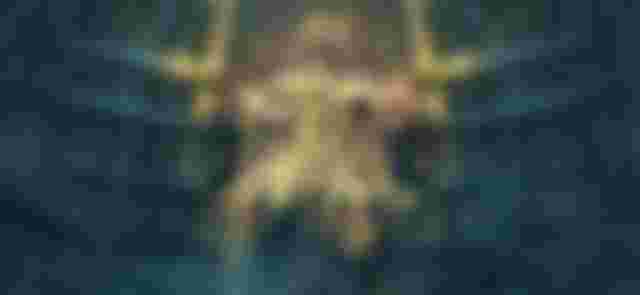Can you be free without harming others?

Thomas Hobbes: Man and Society.
I wonder, who determines man, the man himself or the society where he lives?
Ideas seem to dance back and forth between opposite poles. In the end, these end up touching each other because these have the only nature.
Have you ever wondered how free you can be?
In this sense, it is enough to understand our nature.
Although it may seem a logical answer, it is not, and it has given much food for thought for millennia.
Well! There are supposed truths that today, we take for granted, but if you think about it, they are not so when passed through the sieve of current advances.
One of these is undoubtedly the form of governance.
Today I would like to share with you some considerations still dominant in our societies, such as the justification of national states through a brief reflection of the thought of a political philosopher such as Thomas Hobbes.
The conception of human nature, expressed by Hobbes in his writings, is based on the theory of psychological determinism elaborated on the personal introspection he makes about Man's passion and selfishness.
On the other hand, he starts from an initial non-political hypothetical situation, which he calls the State of Nature: where there is a plurality of individuals with original natural rights, who in the absence of a central power that protects the relations between them, are a force to compete, fight and be in conflict (state of permanent war) to obtain and control (through force or fraud) the scarce resources. In this sense, Hobbes understands that Man, by natural right, must satisfy his (individual) desires and always aspires to achieve glory.
Hobbes, influenced by the intellectual environment of the time (Mecanicist), guided by his fascination with the deductive method of Euclidean geometry and moved by the anarchy provoked by the English Puritan revolution in which he lived, elaborates rigorous axiomatic assumptions about the nature of man and his desires. He rigorously elaborates simple axiological supports to affirm, in a general way, that: "man is an antisocial machine" of a passionate and selfish nature, oriented to the satisfaction of his desires, incessantly and inexhaustibly seeking power, warrior by nature and not altruistic, distrustful and ambitious.
The moral ethics of man thus described is relative, governed by the strongest inclination that manifests itself in the choice of the existing dichotomy between appetite and aversion. In this sense, the good corresponds to what I desire, and the bad to what causes me repulsion.
The theoretical relationship that Thomas Hobbes establishes between his conception of man and his conception of society: is guided by the just reason and its calculation; it is not evolutionary but forced and artificial that is subsume in the celebration of a hypothetical pact of union between all men, by which voluntarily abandons the state of nature (they lose their natural equality), to create and deposit in a third party the central power to whom they must obey to the detriment of their natural rights and liberties except their own life, he will try to achieve the guarantee of the greater good (Life) and avoid the worst of evils (Death), in other words, to obtain security for subsistence, property, and peace that allows developing life in society, since as individual and natural entities they are incapable of achieving it.
The Pact of Union, or social contract, becomes in such a way opportune, desired, and expressed in sufficient signs.
Which, concluded multilaterally, and not between two parties: confers, according to Hobbes, to the Leviathan (whoever is - appointed - the sovereign) characteristics of absolute, unlimited, indivisible, and irrevocable to impose and maintain the social order (artificial) and to create and establish laws and civil norms under penalty of being or not in tune with the rights and natural laws (maxims of prudence) and that endowed with sufficient force have the power to punish those who transgress the common good.
The sovereign, for Hobbes, is the monarch and must be absolute according to reason.

Source: Image by Stefan Keller on Pixabay
FINAL THOUGHTS
Well, this brief essay confronts my old self at the end of the last century with the present self, in permanent scrutiny, seduced by the ideas of decentralization.
No doubt, Hobbes had a pessimistic view of human goodness. It is difficult to refute his logic based on human performance when (in our days) the threat of thermonuclear war is imminent.
In any case, Hobbes' prescription, The Leviathan, seems destined to fail.
Of course, I must also tell you that there are other much more optimistic thinkers who trust not only in the goodness, solidarity, and altruism of our species and who bet on a better world.
In this sense, one must strive to overthrow the true Leviathan and not to enthrone him externally: The one that lives in each one of us.
Imagine, someone naive could demand a world government. But, if having local governments that have become corrupt is almost impossible to eradicate, what will a diffuse world government, elected by who knows who be?
Even the dictatorship of the code is suspect. Or the supposed rationality of artificial intelligence in power brings more darkness than light.
So, where to find the solution to the problem of humans?
I don't know, but I sense (the problem) lies in the lack of love for one another. In addition, the definition of the duty to be and the essence of the sovereign.
Bibliography:

An original article by @Jnavedan
The thumbnail by Mohamed Hassan on Pixabay
Stable Diffusion cover image defined by me.
I end by thanking all my colleagues in the community, who add value every day here. As well as all my sponsors for believing in the content I share with you.



I have read and watched stuff about Leviathan, are they spirits? I only know the basic of them.